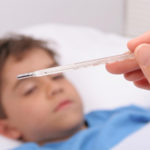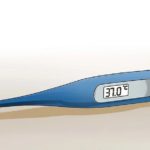Monitoring a newborn baby’s body temperature is crucial, as it directly reflects their health status. The UK-based organization, The Lullaby Trust, emphasizes that new parents should pay close attention to their baby’s body temperature during the first few months of life.
Understanding the normal body temperature range for newborns and the significance of different temperature levels is essential for new parents.
1 What is the Normal Body Temperature for a Newborn?
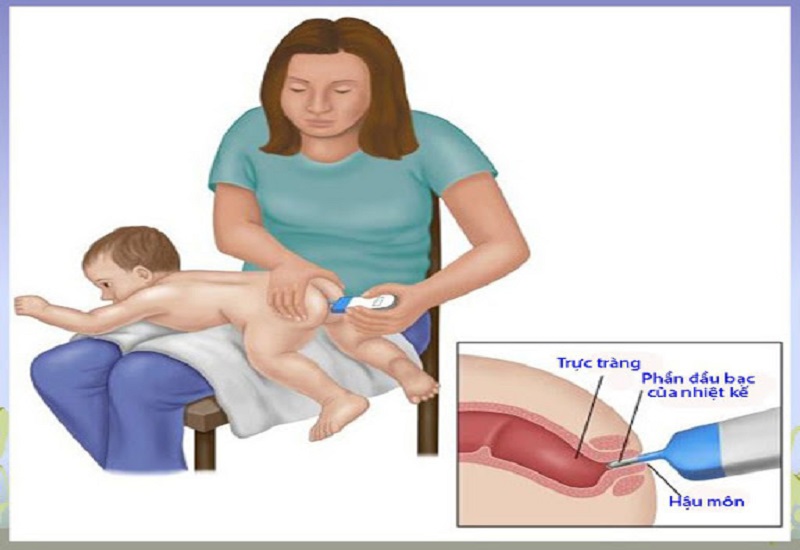
A newborn’s normal body temperature is typically lower than that of an adult by about 1 to 1.5 degrees Celsius, falling within the range of 36.5 – 37.5 degrees Celsius. While temperature can be measured at various body sites, the ideal location for taking a newborn’s temperature is the rectum, as it provides the most accurate reading.
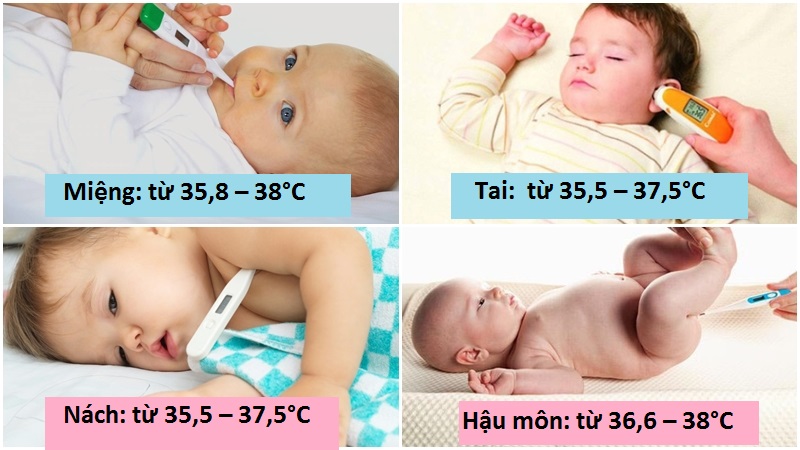
It’s important to note that temperature readings will vary depending on the body site:
- Rectum: Newborns’ body temperature typically ranges from 36.6 – 38°C when measured rectally.
- Mouth: Newborns’ mouth temperature can range from 35.8 – 38°C.
- Ear: The temperature in a newborn’s ear usually falls between 35.5 – 37.5°C.
- Armpit: The armpit temperature for newborns is typically within the range of 35.5 – 37.5°C.
2 What Temperature is Considered a Fever in Newborns?
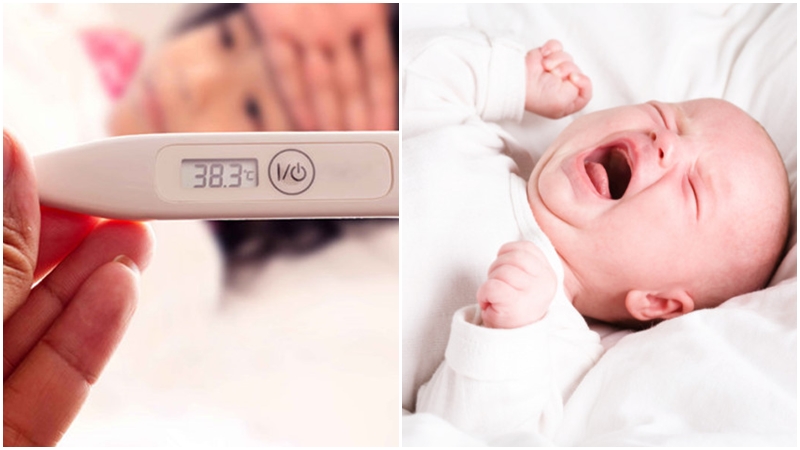
A newborn’s body temperature is a direct indicator of their health status, and it’s important to monitor it regularly. Newborns cannot communicate discomfort, so parents must be proactive and prepared to handle any situation.
A body temperature above 37.5 degrees Celsius indicates a fever. Specifically, a temperature of 38 degrees Celsius is considered a low-grade fever, while a temperature of 39 degrees Celsius or higher is a high fever, requiring immediate medical attention. If a newborn’s temperature reaches 40 degrees Celsius or higher, seek emergency medical care.
For newborns under 28 days old, a fever of 38.3 degrees Celsius or higher is considered an emergency, and they may experience seizures if their temperature reaches 38.6 degrees Celsius.
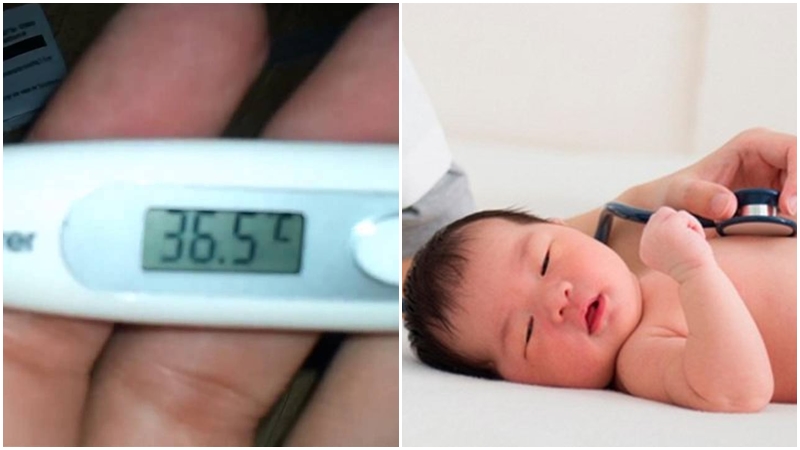
On the other hand, a body temperature below 36.5 degrees Celsius is cause for concern. Symptoms such as cold and bluish skin, low blood pressure, and muscle stiffness may occur. In severe cases, respiratory failure can occur when the body temperature drops below 34 degrees Celsius, and a temperature below 28 degrees Celsius can lead to coma and loss of light reflex in the pupils due to pupil dilation.
For further reference: A comprehensive guide to effective and safe fever management at home.
3 What Causes Fever in Newborns?
Fever is a common immune response to various conditions and factors, and it is especially prevalent in young children. While fever indicates a healthy immune response, it is also a significant cause of concern for many parents.
Infections are the most common cause of fever in newborns, with viral and bacterial infections often resulting in elevated body temperatures. Common infectious conditions associated with fever include:
- Common cold
- Diarrhea
- Ear infections
- Croup
- Bronchiolitis
- Respiratory infections
- Gastroenteritis
- Urinary tract infections
- Skin infections
- Tuberculosis
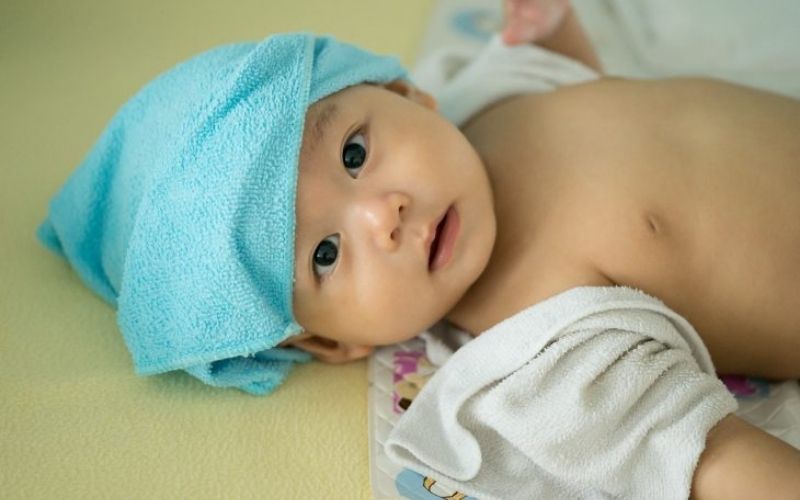
4 How to Take Your Baby’s Temperature
If your newborn exhibits signs such as waking up in the middle of the night, fussiness, fatigue, flushed cheeks, warmth, or sweating, use a thermometer to take their body temperature.
Note: Digital thermometers are safer and more accurate than mercury thermometers.
The method of taking your baby’s temperature depends on their age and the body site:
Infants under 3 months old
For newborns, taking the temperature in the armpit is convenient. If the reading is above 37.2 degrees Celsius, consider taking the rectal temperature. If the rectal temperature is 38 degrees Celsius or higher, seek medical attention immediately.
Infants aged 3 – 5 months
You can take the temperature in the armpit or ear.
Children under 4 years old
For children under 4, you can use the armpit method. A temperature of 38 degrees Celsius or higher indicates a fever.
Children over 4 years old
Taking the oral temperature provides the most accurate reading. A temperature of 37.8 degrees Celsius or higher indicates a fever in older children.
Older children
For older children, the armpit method is suitable.
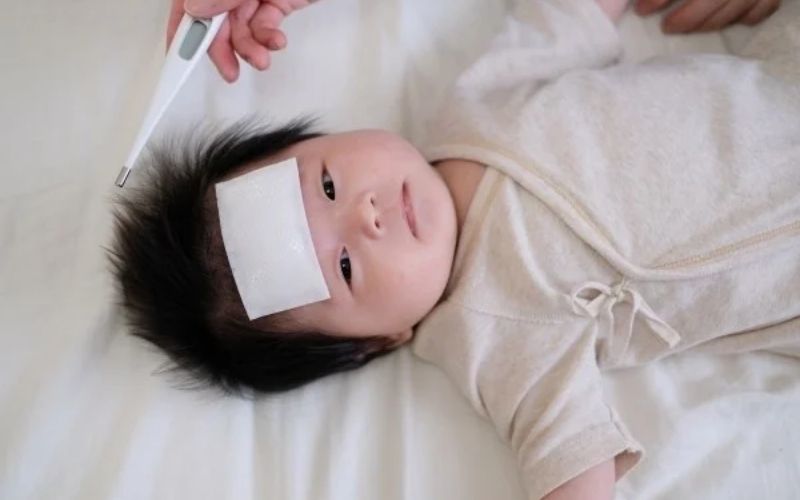
5 Important Considerations When Taking Your Baby’s Temperature
When taking your newborn’s temperature, keep the following in mind to ensure accuracy and avoid any potential harm:
- Avoid overdressing your baby or engaging them in vigorous activity before taking their temperature, as this can artificially raise their body temperature and provide an inaccurate reading.
- Taking the temperature in the ear may be uncomfortable for newborns due to their narrow ear canals.
- Only take the oral temperature for children 4 years of age and older. For younger children, the digestive system is still developing, and there are potential hygiene concerns with the thermometer.
- Take temperature readings at least 3 times a day: in the morning when they wake up, before bath time, and in the late afternoon or early evening. Body temperature fluctuates, typically lower in the morning and higher in the afternoon.
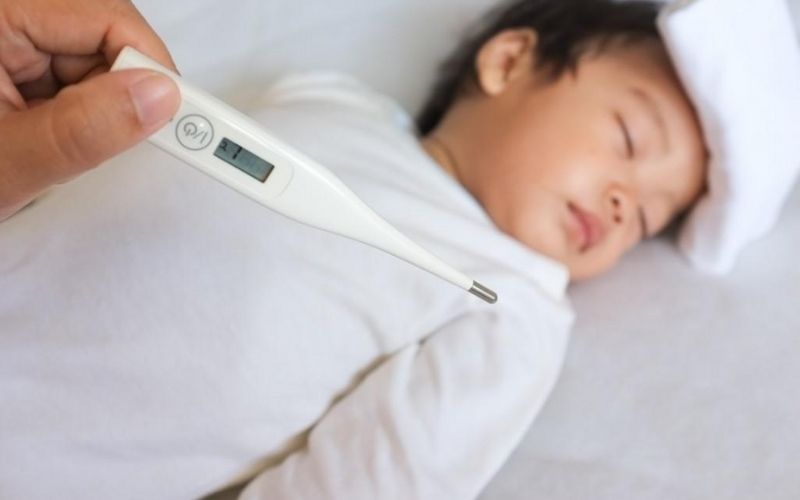
6 Home Care for a Feverish Newborn
In addition to knowing the normal body temperature range for newborns, parents can follow these guidelines to care for a feverish newborn at home:
- Undress your baby and use a warm washcloth to wipe their armpits, groin, and head for 5-15 minutes to open the pores and allow heat to escape. Afterward, dress them in lightweight cotton clothing.
- Encourage your baby to drink plenty of fluids to prevent dehydration due to sweating and breathing. For breastfed infants, continue breastfeeding on demand.
- Hold off on feeding during a high fever to prevent choking in case of seizures. Once the fever subsides, offer light, easily digestible foods.
- Monitor for accompanying symptoms to identify the cause of the fever and watch for warning signs of a more severe illness.
- Take your baby’s temperature every 30 minutes, and if it remains elevated, consider giving them fever-reducing medication or rectal suppositories.
Additionally, parents should AVOID the following practices, as they are ineffective in reducing fever and may even be harmful:
- Overbundling
- Cold compresses
- Rubbing alcohol or herbal remedies on the skin
- Administering antibiotics without medical advice
- Combining paracetamol and ibuprofen
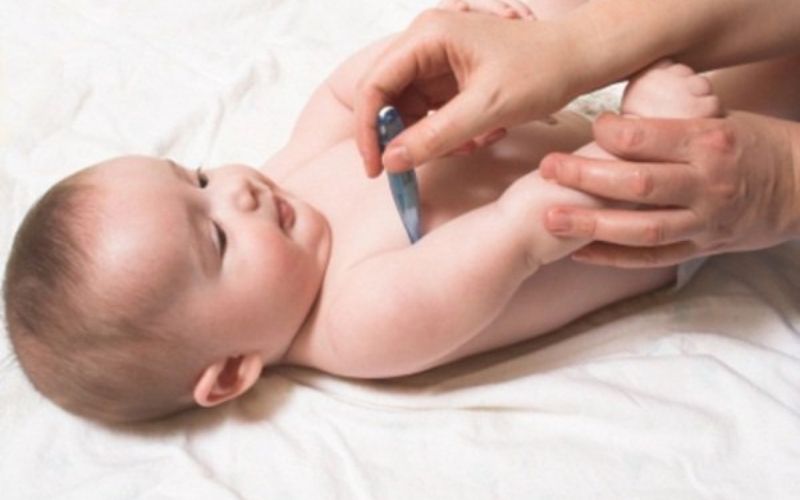
7 When is a Fever Concerning?
Most fever cases can be managed at home with proper care. However, parents should seek medical attention if their child:
- Has a high fever that doesn’t respond to cooling measures or medication.
- Experiences additional symptoms such as vomiting, wheezing, fatigue, panic, cold hands and feet, or rash.
- Has a persistent fever lasting 2-3 days or a recurring fever for more than a week.
- Shows signs of irritability or decreased feeding along with a fever.
- Is 3-36 months old with a fever of 38.9 degrees Celsius or higher, or an older child with a fever of 40 degrees Celsius or higher.
- Has an underlying medical condition, such as heart disease, cancer, lupus, or sickle cell anemia.
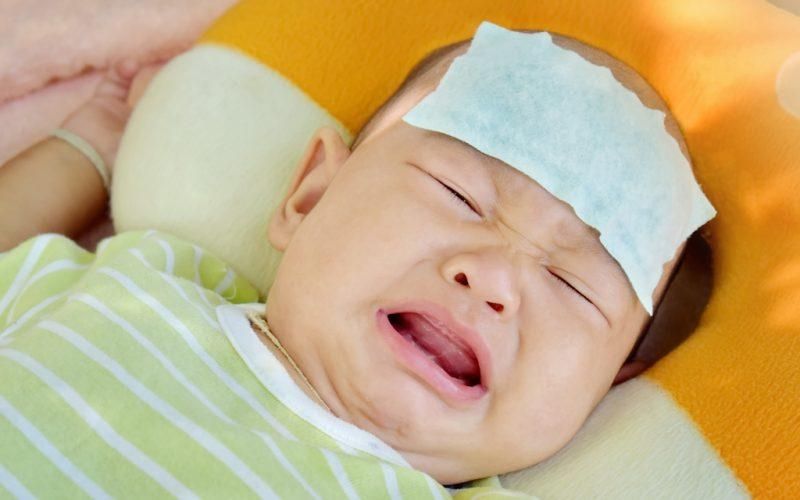
We hope this article has provided you with valuable insights into caring for your newborn’s health. There’s nothing more important than your child’s well-being, and we wish you and your family the very best.
You may also be interested in:
The Risk of Underestimating Getting Caught in the Rain
No matter the weather, getting caught in the rain can be an unwelcome occurrence. While one may think that it’s no big deal, it’s important to take measures to get yourself dry and warm after such an experience. Don’t underestimate the effects of the rain – it can be more damaging than one may think.
























